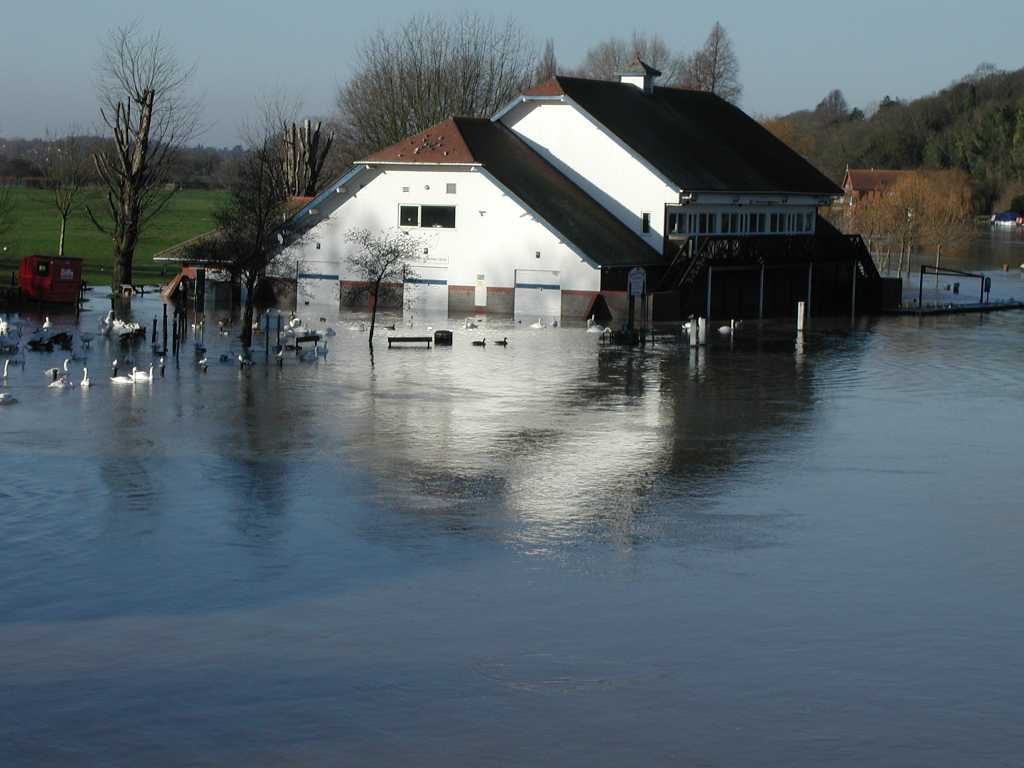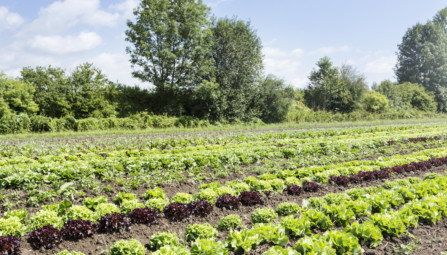WATER THEME ACTION PLAN
Climate change and the water environment
Our changing climate is expected to lead to more extreme weather events for Reading. These will include more intense rainfall and floods, heat-waves and droughts. The impacts are predicted to increase over time, with winters getting warmer and wetter, while summers become hotter and drier.

Reading is located in one of the most water stressed parts of the country, with a similar water availability per head to some communities in the Middle East. Approximately 80% of Reading’s water is abstracted from the River Kennet, at the Fobney Water Treatment works. The chalk aquifer under the Berkshire Downs is the source of most of the water in the Kennet. Fortunately this gives Reading a good level of resilience for its water supply. However, we are vulnerable: with the potential for more intense future droughts – coupled with the expected growth of the town – we need to make sure we manage our use of water carefully.
As with other sectors, COVID-19 has had a huge impact on the water sector. We have seen a big increase in peak water usage, and a dramatic shift in the balance between domestic and commercial water consumption. Some of these changes, including more working from home, are likely to be permanent. Hence it will be a priority for us to understand how much more vulnerable Reading’s water supply is, and it will make delivery of our actions even more important so we can prepare for the added impacts of the changing climate.

The risk of flooding will increase for Reading, particularly from the River Thames and from surface water, as a result of more intense storms. We have a large area of land at risk of flooding which is predicted to get worse due to climate change: increasing the frequency, duration and depth of floods; and increasing the area of land at risk. This needs to be taken into account when considering new development, including buildings. A Strategic Flood Risk Assessment (SFRA) has already been undertaken which describes and analyses how Reading is affected by flood risk and the nature of that risk. The flood plain plays an important role in protecting the built-up area of Reading and the surrounding area as it accommodates floodwater. This has been recognised in Reading’s adopted Local Plan and reflected within in its policies to ensure that: the capacity of the floodplain is not reduced; flood flow paths are not obstructed; and that inappropriate development in the flood-plain is avoided.
Progress to date
We have a strong community of water industry experts in Reading, who will help guide us towards our vision and targets. These include:
- Thames Water (who have their head office in Reading) supply all of our water, and most of our drainage, and have a lot of information and expertise to share
- The Environment Agency regulate our water environment and will help us to understand what the environmental limits are, as climate change increases our drought and flood risk
There are also a number of policies in the Reading Local Plan, adopted in November 2019, which are designed to encourage more efficient use of water and prepare for the impacts described above.
Priorities on the pathway to net zero for emissions related to water use
A big focus for the water theme will be on learning over the next 5 years, as we help everyone to become more ‘water aware’. The need to save water is primarily an adaptation issue. However, approximately 1% of the UK’s total greenhouse gas emissions are associated with pumping and treating water, so being more water efficient will make a notable difference. Of greater significance is the energy involved in heating water in our homes. This can be a very large part of the carbon footprint of a house. Measures to tackle this are picked up in the Energy and Low Carbon Development theme.
Key adaptation issues for the water environment
Reducing our water consumption is a vital response to the increasing risk from drought with the changing climate. Ambitious national targets on water efficiency are anticipated within the next year. Rather than set additional targets on water we intend to develop these, during the life of this strategy, into robust 2050 targets for Reading. These will aim to make us the most water efficient town in the country. Following on from this, we intend to:
- Contact Defra and volunteer Reading as a case study town to benchmark this new 2050 target
- Work with council planners and Thames Water to develop our already good Local Plan policies to explore the concept of ‘Water Neutrality’ in new development
- Research into water reuse, and help us understand our potential to help reduce future water demand
- Support Thames Water’s future rollout of smart water meters on household and commercial properties
Our other key priority for Reading is to improve flood resilience:
- Through education we will help people and businesses prepare. By 2025 we want everyone at risk of flooding in Reading to be signed-up to the EA Flood Warning service
- We will advise on and encourage the reshaping of the town: breaking-up hard surfaces and encouraging green roofs, natural flood management measures and sustainable drainage systems to slow the flow of storm water. This will give it a chance to irrigate rather than flood the town
We also want to improve understanding about where our water goes so that we can minimise the impacts of waste water on the environment.
Water Theme Action Plan: Reading will aim to become the most water aware and water efficient town in the UK, going beyond national targets. We will achieve this by developing and implementing a dedicated communications and education strategy and delivering a range of water saving improvements in Reading’s homes and businesses. Climate change will also increase the risk of flooding: significantly from the River Thames and from urban storm water. We will help residents and businesses understand these risks and to get ready for them.














